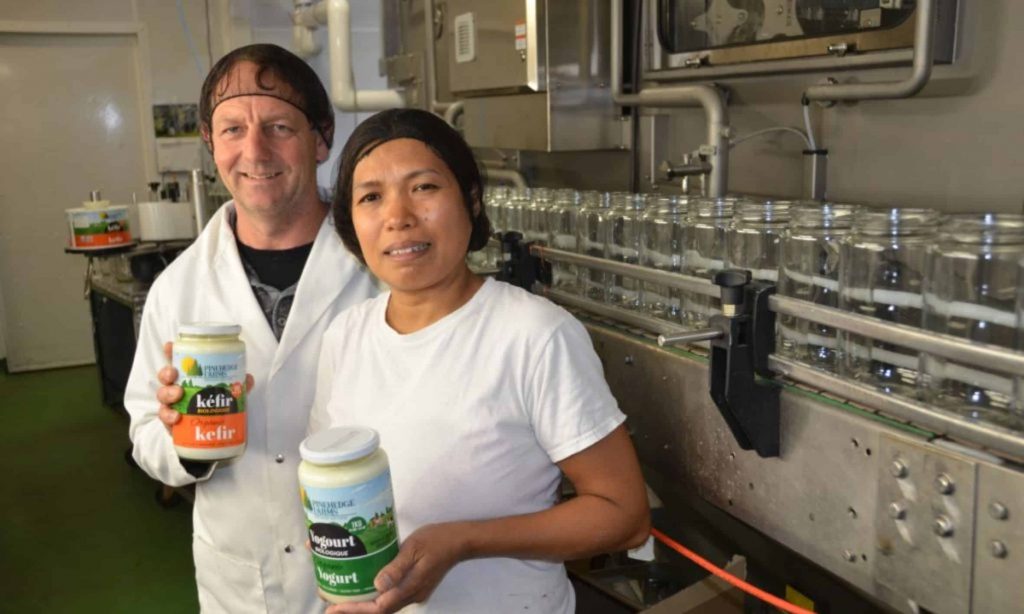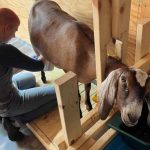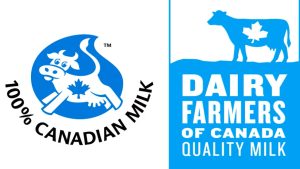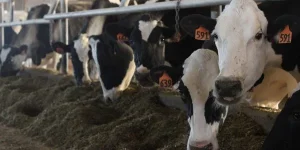
But entry into on-farm dairy processing wasn’t quite as buttery smooth for trailblazer Josef Heinzle almost 30 years ago.
In the early 1990s, the St. Eugene dairy farmer had to apply for a dairy-processing licence through the same channels as any food-manufacturing company. His application was opposed by competing mainstream processors, who appealed to a provincial tribunal. Heinzle, owner and operator of Pinehedge Farms — maker of organic yogurt and kefir since 1994 — says the tribunal ruled in his favour and allowed him to process his own milk. His application received “a lot of support” from his local community, member of parliament and fellow farmers, he recalls. The idea was so new, he remembers how one farmer asked during a hearing if the Heinzle farm still had to adhere to its production quota. (It does, and currently holds 85 kg of quota.)
He says it was another industry obstacle of that era that prompted him to pursue processing in the first place. There was a lack of a separate collection stream for organic milk. The Heinzle farm, founded by his late father, Anton, when the family immigrated to Canada in 1982, embraced organic production. Josef Heinzle, now 56, had the operation officially certified as organic when he took over. But there was no way to earn a premium for his organic milk — unless they made their own organic products and marketed them themselves. When the modest plant went on line in 1994, it was the first on-farm organic milk-processing plant in Ontario, he says, and one of the very first on-farm stores. Today, DFO picks up organic milk as a separate stream, though most of the output from Heinzle’s 95-head, grass-fed, mixed-breed production herd goes straight into his own processing and marketing operation.
As a practical matter, Heinzle settled on plain yogurt and kefir as his main products. Both are fairly simple to make and have a good shelf life. Because his primary passion is still farming, “I didn’t want to spend all of my time in the processing plant,” he explains. The business has since added sour cream and a “light” version of kefir. Kefir, like yogurt, is a form of fermented milk, though thinner and made with a bacterial culture that does its work at a cooler temperature than the culture used to make yogurt.
The final product is sold in one-litre returnable glass jars.

While many of the more recent on-farm processors are focused on farm-gate sales, Heinzel’s farm — which is off the beaten path — wholesales much of its output through commercial distributors whose trucks arrive to pick up product from the plant’s loading dock. The business also sells direct to consumer over the plant’s front counter, once a week.
Heinzle estimates that his products are found at 500 individual store sites around eastern Canada. One of the most gratifying aspects of the enterprise is the feedback from customers, who appreciate his additive-free, quality products. “It’s nice when you get the nice comments,” he says.
He recounts how a relative was in South America and bumped into a man from Quebec. Somehow, their conversation turned to yogurt, and when the man began raving about making special trips into Montreal to pick up his favourite variety, it turned out he was talking about the Pinehedge brand.
Farmers need to make a product that sets them apart if they are to get into dairy processing, he suggests. “If you want to sell to stores, I figure it should be something special because we can’t compete on price.”
His own products sell for $8 or more per litre at retail level, though he doesn’t set that price as a wholesaler. The distributors pay him about half that amount, he says.
He admits that sales have declined a little since the pandemic, and he’d like to boost it back up again. Heinzle and his wife, Laila, and a full-time staff member work at the plant processing 7,000 to 8,000 litres of milk each week. He’s updated his logo, switched to a better glass jar and installed an impressive new jar-washing machine to increase efficiency inside the facility.
He’s no stranger to automation and constant improvement. Across the farmyard is the new dairy barn that he built in 2018, complete with two robots to milk the cows. DFO picks up the milk and delivers it to the plant about 200 meters away.
And yes, Heinzle says, he’s still having fun.

























